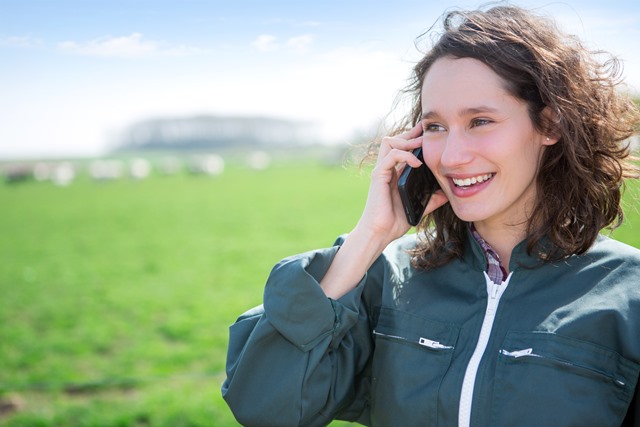Key Dates
Next Grant Round:
Applications for funding will open early 2025.
> Information about our Grants Program
Independent Grants Panel:
Results of the recent EOI will be notified Dec 2024.
> Information about our Panel
We can help: grants@accan.org.au
or phone 02 9288 4000
Subscribe to Grants Program mailings
 Broadband plans are commonly advertised on headline speed claims which may only be achievable in ideal test conditions and are not what consumers should expect in real world everyday use. Claims are qualified with an elusive list of factors that can affect performance, but this is difficult for consumers to engage with or apply to their service. This issue is heightened with nbn and the promise of faster and better technologies and services.
Broadband plans are commonly advertised on headline speed claims which may only be achievable in ideal test conditions and are not what consumers should expect in real world everyday use. Claims are qualified with an elusive list of factors that can affect performance, but this is difficult for consumers to engage with or apply to their service. This issue is heightened with nbn and the promise of faster and better technologies and services.
Read more: Summary: Independent Broadband Performance Information
Cloud computing has the potential to transform the way individual consumers and small businesses store and use data, potentially saving time, money and effort. You may already be using a cloud computing service like Hotmail or other web-based email services. However, cloud computing involves risks for consumers that must be carefully managed.
This position statement has been issued by peak disability and consumer groups regarding the two proposed mobile emergency services for people who are Deaf, hearing-impaired or with speech impairment or complex communication needs (CCN). We stand together in calling for a simultaneous implementation of bothan SMS emergency service and an emergency service provided via a smartphone application.
Read more: Access for people with disability to emergency calls
The mobile phone is arguably more important than the fixed phone line for personal and business communications in regional and remote Australia, but users without reliable mobile coverage are missing out on this communications revolution. ACCAN has advocated strongly on this issue for a number of years and believes that the Australian Government has a vital role to play in improving mobile coverage in regional and remote Australia.
ACCAN's broadband position statement, entitled Our Broadband Future, was launched at the ACCAN National Conference 2010 in Melbourne. ACCAN defines four principles that should guide broadband policy.
An ACCAN Position Statement on the National Broadband Network's installation process.
ACCAN is calling on the government to make National Broadband Network (NBN) fibre-optic cable installations automatic unless individual property owners choose to opt out.
 The Regional, Rural, and Remote Communications Coalition (RRRCC) is a collective of 21 organisations dedicated to improving connectivity in the bush. Through awareness campaigns and direct advocacy, the RRRCC amplifies the voices of communities in regional, rural, and remote Australia.
The Regional, Rural, and Remote Communications Coalition (RRRCC) is a collective of 21 organisations dedicated to improving connectivity in the bush. Through awareness campaigns and direct advocacy, the RRRCC amplifies the voices of communities in regional, rural, and remote Australia.
Read more: Regional, Rural and Remote Communications Coalition
Australians want affordable, reliable internet for all.
New research commissioned by ACCAN and conducted by Essential Research reveals strong public support for a concessional broadband service to help low-income households stay connected during the ongoing cost-of-living crisis.
- 69% of Australians support the introduction of a concessional broadband service.
- Support is highest among:
- Low-income households (82%)
- People with disability or long-term health conditions (75%)
- Those in serious financial difficulty (81%)
- Retirees (77%)
With broadband now essential for accessing education, employment, health care, and government services, the findings reinforce calls for government action to ensure no Australian is left offline.
Download the research snapshot here: ![]() ACCAN CST - Concessional Broadband - Summary Report - April 251021.56 KB
ACCAN CST - Concessional Broadband - Summary Report - April 251021.56 KB
Communications affordability is an important issue, especially with many consumers facing cost of living pressures and rising costs of telecommunications services.
ACCAN conducted a survey through Ipsos’ Digital Omnibus survey in March 2023 to better understand consumers’ experiences with communications affordability. This survey sought the views of 1,000 respondents from a variety of age groups, locations, and incomes.
It found:
Australian Communications Consumer Action Network (ACCAN) and the Public Interest Advocacy Centre (PIAC) commissioned research on how consumers experience their billing arrangements.
This research has found that some of the payment options that are offered by telecommunications providers to their customers are not suitable for people in vulnerable circumstances.
Some of the key findings of the research include:
New research from the Australian Communications Consumer Action Network (ACCAN) has revealed that almost three in four Australians agree that it needs to be easier to make a complaint and to get their issues resolved when dealing with digital platforms such as Facebook, WhatsApp, eBay, and Service NSW.
A nationally representative survey of 1,000 Australians conducted by the peak body for communications consumers using Ipsos’ Digital Omnibus online survey found that 74% of respondents think that it needs to be easier for people to make a complaint, and 78% think that it needs to be easier for people to get their issues resolved on digital platforms. Digital platforms were defined as websites and apps such as social media, Government online services, job search sites, dating apps, messaging apps and online marketplaces. ACCAN’s polling also shows that 60% of Australians feel there’s not much they can do when something goes wrong online.
Read more: Digital Platforms and the Consumer Experience in Australia
ACCAN recently commissioned research asking the Australian public about their top concerns when it comes to their communications services.
We surveyed nearly 1000 (n=998) Australians on a range of topics. We asked people about the affordability and reliability of their communications services, their use and trust of public wi-fi, their TV viewing habits and what they do to keep themselves safe on social media, messaging apps and other digital platforms. The results show that in 2022, Australians expect a communications market that is trusted, inclusive, accessible and available for all.

